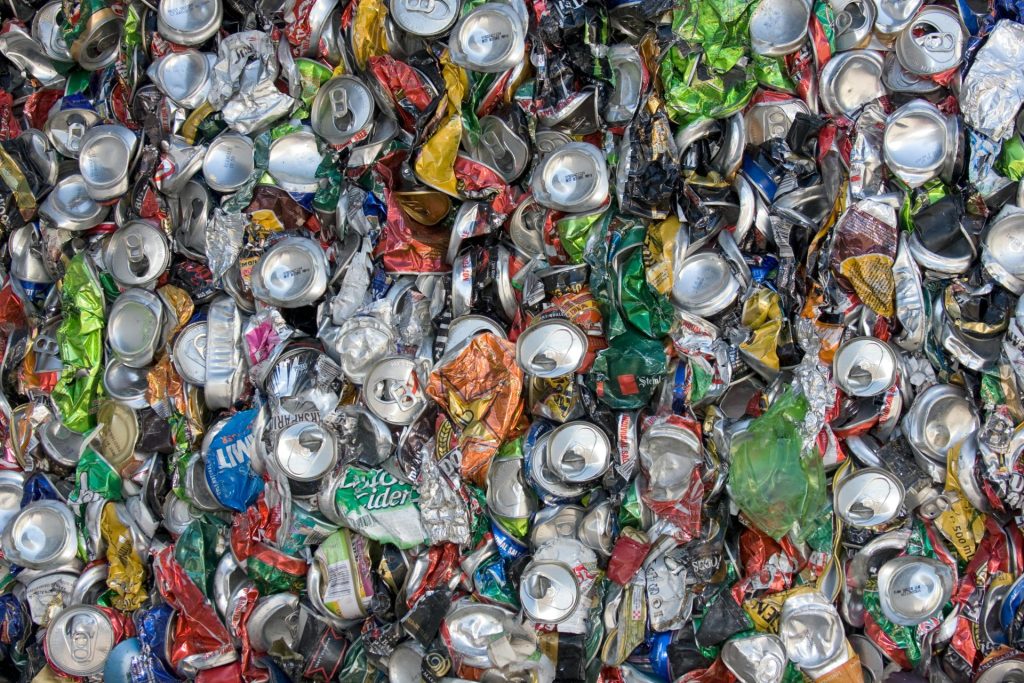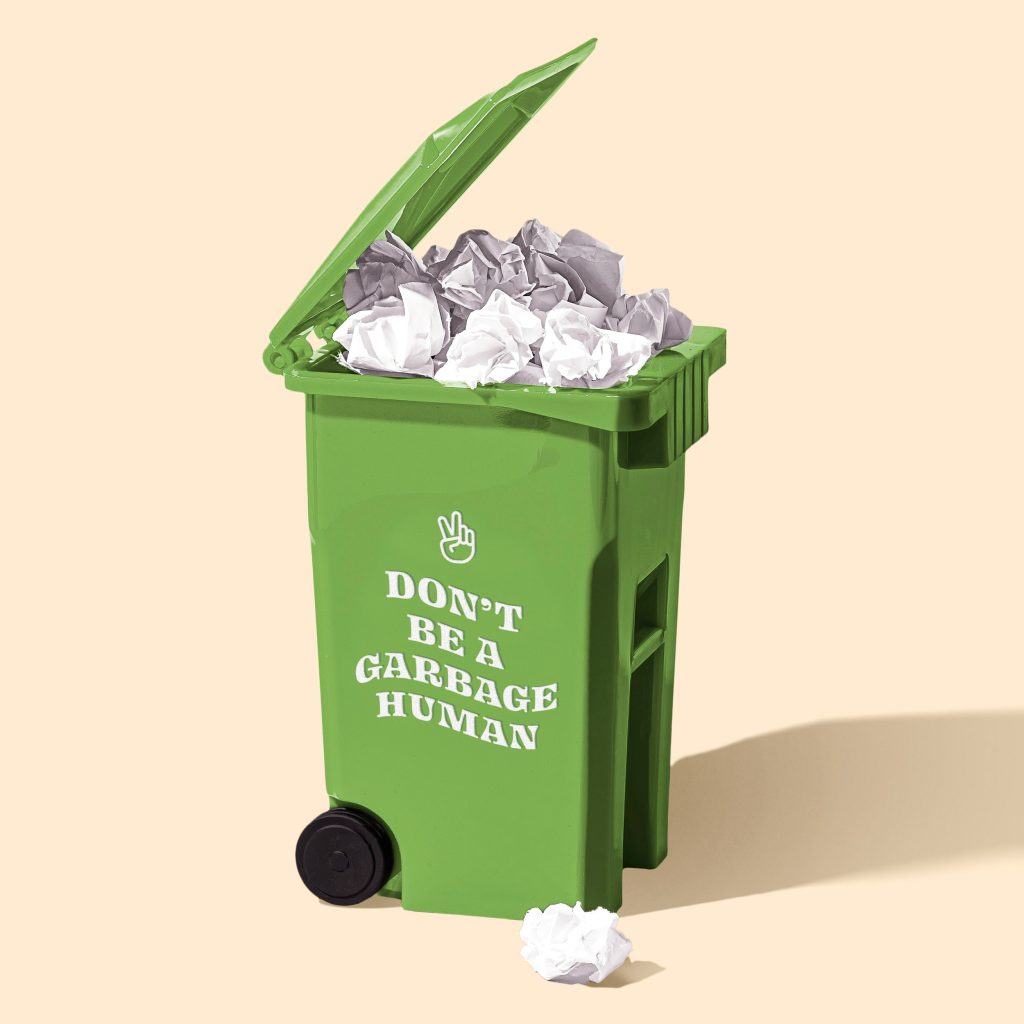
What is sustainable living? How Your Choices Shape a Sustainable Present and Future
By embracing sustainable living, we adopt practices that contribute to the well-being of the environment, society, and economy.

Have you ever considered how much metal waste your household generates?
Do you know where that waste ends up?
Are there ways to minimize this waste and contribute to a more sustainable future?
Welcome to the path of eco-friendly living! Reducing waste is crucial in safeguarding our environment. While paper and plastic frequently capture headlines, metal waste presents a significant sustainability challenge.
Fortunately, decreasing metal waste in our households is achievable. From understanding the basics of recycling metals to exploring creative ways to upcycle, this guide will walk you through practical steps to minimize your metal footprint at home. Let's explore how simple changes can lead to substantial environmental impacts.
Metal waste can be broadly categorized into several types:
Ferrous Metals: These are metals that contain iron. They are magnetic and include steel and cast iron. Common sources of ferrous metal waste include:
Non-Ferrous Metals: These metals do not contain iron and are generally non-magnetic. They include metals such as aluminum, copper, lead, zinc, nickel, and precious metals like gold and silver. Common sources include:
E-waste: This is electronic waste, which includes discarded electronic devices. E-waste is a significant source of various metals, including both ferrous and non-ferrous metals. Examples include:

Photo by Darren Patterson: https://www.pexels.com/photo/smashed-cans-in-close-up-shot-4593026/
Reducing household metal waste is becoming increasingly important in our quest toward sustainability. Every piece of metal that we throw away has the potential to either add to landfill burdens or be a valuable resource for recycling and reusing.
Metals in the environment can degrade very slowly, causing environmental pollution, and mining new metals causes significant degradation, including deforestation, soil erosion, and pollution of water sources. When we reduce metal waste, we help conserve natural resources, reduce energy consumption needed for mining and processing, and mitigate pollution.
Moreover, minimizing metal waste can also be economically beneficial. It reduces the costs associated with waste disposal and helps support the recycling industry, which can be a significant sphere for job creation. Households can also gain financial benefits by selling scrap metal, turning waste into a resource.

Photo by SHVETS production: https://www.pexels.com/photo/woman-sorting-trash-for-recycling-at-home-7512766/
Incorporating metal recycling routines into our household practices is not just beneficial; it's essential. Metals are among the easiest materials to recycle compared to plastics and glass, which can degrade in quality every time they are recycled. On the other hand, metals can be recycled indefinitely without losing their properties (1).
Recycling metals provide numerous environmental, economic, and community benefits (2). Environmentally, it conserves natural resources since recycled metals reduce the need for mining. Recycling metals also saves energy. For example, recycling aluminum cans saves up to 95% of the energy needed to make the same amount of aluminum from its raw source (3). Over time, this substantial energy saving can lead to reduced carbon emissions, which is integral in the fight against climate change.
Economically, metal recycling supports a robust recycling industry, creating jobs in collection, transportation, and processing. It also often offers a cheaper alternative for manufacturers who use recycled metals, reducing production costs and potentially lowering consumer prices.
From a community perspective, robust recycling programs can reduce local pollution and conserve space in community waste management facilities meant for non-recyclable waste. This helps create healthier, more sustainable communities.

Photo by Artem Beliaikin on Unsplash
Recycling metal items at home can be straightforward if you know what is recyclable and have a routine. Here are steps and tips to effectively recycle metal waste:
https://www.youtube.com/watch?v=zM7RgDdZLYA
With these practices, we can effectively reduce metal waste in our households, contributing to environmental sustainability and economic efficiency.
Upcycling, in the context of sustainability, is the way to transform waste materials or unwanted products into new materials or products. Unlike recycling, upcycling uses creative techniques to repurpose items into higher-value products. This approach reduces waste and limits the need for new resources, supporting a more sustainable cycle of consumption and disposal.

Photo by Pixabay: https://www.pexels.com/photo/person-black-with-trumphet-39348/
Upcycling metal waste can be both fun and functional. Here are a few creative ideas to get you started:
These projects extend the life of metal materials and add a personalized touch to your home.
Upcycling metal waste boasts numerous benefits:
Ultimately, upcycling contributes to a healthier planet and enhances our surroundings and quality of life through unique, cheap, customized products.
Finding new uses for old metal items can be incredibly rewarding. Whether it's turning an old metal bed frame into a garden trellis or using metal barrels as rainwater collectors, the possibilities are endless. Repurposing is all about looking at what you currently have and thinking about how it can serve a new purpose. This approach is eco-friendly and adds an element of uniqueness and personal flair to your home and garden.
Simple repurposing ideas include:
Get creative with items. You will contribute to waste reduction and add a bit of history to your living space.
One effective way to reduce metal waste at home is by simply buying fewer products that contain metal. Before making a purchase, consider if the item is necessary or if a sustainable alternative is available.
For frequently used items, invest in high-quality products that will last longer. Also, choose products with minimal packaging and significantly reduce metal waste.
Here are some great tips.
Start by familiarizing yourself with the recycling guidelines set by your local community, as these can vary significantly. Many areas offer curbside pick-up for metals, while others might require you to bring items to a recycling facility.
Involving every family member in the recycling process is a great way to ensure compliance and consistency in recycling efforts.
Designate a specific bin for metal waste in your home to simplify the separation of recyclables from regular trash. If you're unsure about whether an item can be recycled, a quick call to your local waste management facility can provide clarity.
Remember, by effectively reducing and properly managing metal waste, we make a significant contribution towards sustainability and the health of our planet.
Reducing metal waste in households is feasible and essential for a sustainable future. By implementing these simple yet effective strategies, you can significantly reduce the metal waste you produce, contributing to a cleaner environment and promoting a circular economy.
What steps will you take to reduce metal waste in your home? Share your thoughts and tips in the comments below! If you found this post helpful, don't forget to share it with your friends and family. Together, we can make a significant impact!

By embracing sustainable living, we adopt practices that contribute to the well-being of the environment, society, and economy.

Sustainability goes beyond admiration; it is a commitment to maintaining the delicate balance between our species and the planet.

Dive into the world of traditional board games and discover their diverse health benefits. Explore expert insights on how these games contribute to well-being and mental acuity.

Natural deodorant is an effective and environmentally friendly product. It is a healthy option since traditional antiperspirants often contain chemicals.

Let’s discover the environmental impact of household waste, and hopefully, this will inspire us to create a new mindset.
Welcome to Sustainable Living by Science. With our scientific mindset, we are exploring how to nurture our well-being while caring for the environment. We are sharing the meaning of sustainability through evidence-based practices. Join us on this journey towards a greener, healthier future where science guides us to make the best choices for ourselves, the planet, and others.
All content is © 2024 by Sustainable Living by Science. All rights reserved.